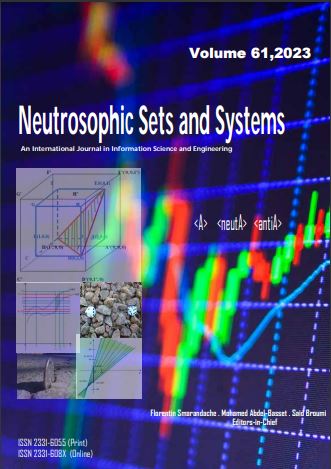Harnessing Tree Soft Set and Soft Computing Techniques' Capabilities in Bioinformatics: Analysis, Improvements, and Applications
Keywords:
Bioinformatics, Multiple sequence alignment, Logic Programming, Multi-Criteria DecisionMaking (MCDM), Single Value Neutrosophic Sets (SVNSs), Tree Soft Sets (TrSS)Abstract
A crucial aspect of bioinformatics is sequence comparison, which entails matching recently discovered biological sequences with previously identified sequences kept in databases. To find similarities between two or more nucleotide or amino acid sequences, sequence alignment organizes the sequences. Understanding the functional, structural, and evolutionary links between the sequences is made easier by looking at these areas of commonality. This study highlighted types of alignment. Also, proposed an effective methodology for deciding which algorithm can be utilized and satisfying the objective. Hence, Multi-Criteria Decision-Making (MCDM) techniques have been harnessed with Neutrosophic theory as a supporter in uncertain situations. Herein Single Value Neutrosophic Sets (SVNSs) as a type of uncertainty theory-Neutrosophic. This process requires a set of criteria leveraged in judgment. Also, Tree Soft Sets (TrSS) are applied for the first time to model the required criteria to facilitate the decision process. The hybrid techniques are applied to support stakeholders in making optimal decisions for optimal alignment algorithms among various algorithms such as pairwise and sequence algorithms. The results of the implementation of this decision technique indicated that multiple sequence alignment is the best compared with pairwise algorithms. Thus, we implemented multiple sequences in our study and employed logic
programming to perform sequence matching. To ensure optimal alignment, the approach is tested on different sets of 16S rRNA gene of Actinobacteria (Streptomyces) sequences taken from NCBI. Then, the results are compared with MEGA.
Downloads
Downloads
Published
Issue
Section
License
Copyright (c) 2023 Neutrosophic Sets and Systems

This work is licensed under a Creative Commons Attribution-NonCommercial-ShareAlike 4.0 International License.








